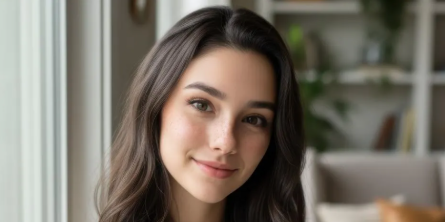
“What if your next favourite movie star isn’t human?”
That’s the question making the rounds this week after the unveiling of Tilly Norwood, an entirely AI-generated actress who has already set Hollywood (and the internet) buzzing.
Created by production company Particle6 and its AI talent studio, Xicoia, Tilly is marketed as the first of her kind: a digital performer designed for film, TV, and social media. She already has an Instagram account, a growing fan base, and the pitch of being a cheaper, tireless, and fully controllable alternative to human actors.
But her launch has sparked as much horror as fascination.
Unlike the CGI characters we’re used to in blockbuster films, Tilly is positioned as an actress, a digital entity that can “perform” roles, interact online, and build a fan following in her own right.
According to The Independent, Tilly’s creators insist she’s not here to replace human talent, but to explore new creative opportunities. Still, the timing does seem notable... only months after Hollywood’s historic actors’ strike, where AI replacement was one of the biggest sticking points in negotiations.
The reaction has been what we can only describe as predictably fierce. Esquire reports that responses ranged from “terrifying” to “gross” and “horrific”, while SAG-AFTRA (the U.S. actors’ union) issued a blunt warning that AI cannot replace performers without their consent (Esquire).
In short: for every person intrigued by the novelty of an AI actress, there are many more worried about what she represents.
Tilly Norwood is more than just a quirky experiment. She is literally a lightning rod for some of the deepest anxieties around AI in the creative industries.
Jobs & livelihoods, Authenticity, Consent & control, Trust – just to name a few.
As the BBC points out, the backlash echoes concerns we’ve seen in music (with AI-cloned voices) and art (with AI-generated images): questions of ownership, originality, and the value of human creativity.
For us, it's the legal questions at the heart of the debate that really capture our interest.
For lawyers, policymakers, and studios alike, Tilly Norwood raises thorny legal issues.
1. Intellectual Property & Training Data
If an AI actress is trained on thousands of copyrighted films and performances, are her “new” performances really original - or infringing? Copyright law doesn’t grant actors ownership over style or idea, but if the likeness or mannerisms are too close, claims of infringement could follow. That said, Early US cases suggest that using copyrighted works to train AI might count as Fair Use, because training the AI model is such a distinct and transformative use.
2. Rights of Publicity & Personality
Actors (and sometimes their estates) hold rights over the commercial use of their image and likeness. If Tilly looks or sounds like a real performer whether intentionally or not it could raise right-of-publicity claims. This is especially sensitive given how quickly AI can “clone” voices and faces.
3. Contracts & Labour Law
SAG-AFTRA has already negotiated safeguards around synthetic performers. Studios using AI talent must disclose it and, in some cases, obtain consent from real actors. Expect future contracts to include clauses on whether a performer’s data can be used to train AI, whether they’re compensated if a digital double is created, and how residuals might work in an AI era.
4. Consumer Protection & Disclosure
If a film markets Tilly as a “real” actress, is that misleading? Should regulators require studios to disclose when a performer is synthetic, much like food labels tell us when something is “artificially flavoured”?
5. Liability
If Tilly accidentally mimics a copyrighted performance or a recognisable person, who gets sued? The studio that employs her, the AI developer, or the agency managing her career?
For now, Tilly is more of a media experiment than a Hollywood blockbuster star. But her existence forces us to grapple with what the future of entertainment might look like.
Studios may see synthetic actors as a way to cut costs, avoid scheduling headaches, and control branding. Unions will fight to protect human performers. Regulators may step in to demand transparency and consent. And audiences will ultimately decide whether they want to watch films starring characters who were never alive.
As one commentator put it, this is less about whether AI can act, and more about whether we, as viewers and as a society, are comfortable when it does.
Tilly Norwood is the first AI actress to spark mainstream debate, but she won’t be the last. Whether she represents the future of cinema or a cautionary tale depends not just on technology, but on the legal and ethical guardrails we build around it.
And maybe the real question isn’t whether AI can replace actors, but whether we want it to?
Got questions? Get in touch.